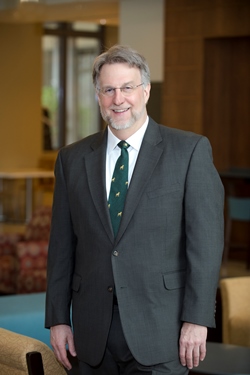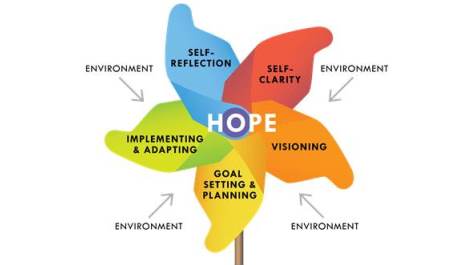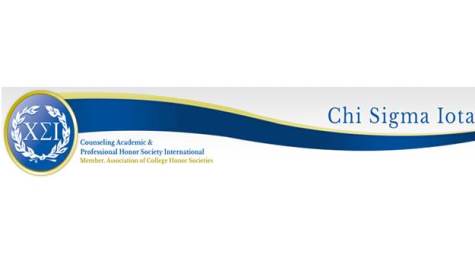Dr. Spencer G. Niles –Making an International Impact
 Dr. Spencer G. Niles, now serving as Dean of the School of Education at William & Mary, started his research as a doctoral student with his mentor, Edwin L. Herr, who is still a leader in the counseling field. Under Dr. Herr’s mentorship, Niles focused his research on career development and vocational psychology.
Dr. Spencer G. Niles, now serving as Dean of the School of Education at William & Mary, started his research as a doctoral student with his mentor, Edwin L. Herr, who is still a leader in the counseling field. Under Dr. Herr’s mentorship, Niles focused his research on career development and vocational psychology.
Most of Dr. Niles’ leadership responsibilities within the counseling profession are connected with the National Career Development Association (NCDA), of which he was the president in 2003-2004. Established in 1913, NCDA is at the forefront of development in counseling. In 2007 Niles received their Eminent Career Award – their highest award.
The Power of Hope
Dr. Niles was a Professor at the University of Virginia for 13 years and also served as Assistant Dean for the Curry School of Education at UVA. While at UVA, Niles connected with Donald Super, developmental psychologist and professor at Columbia, who was a legend in the area of career counseling; Niles became part of his research team. Over time, Niles’ research program grew from having a developmental focus relative to Super’s theory to an emphasis on positive psychology, specifically addressing how people can generate and sustain hope as they develop in their careers. He worked with a team of doctoral students and colleagues at Penn State and the University of British Columbia to develop the Action-Oriented Hope-Centered Model of Career Development (HCMCD). An assessment inventory developed as part of this model has now been translated into six languages and is being used in research studies in Korea, Taiwan, Canada, Italy, Germany, and Israel. The research team has several grants supporting valdations research related to this model.
The HCMCD focuses on action-oriented hope as a means to support individuals as they reflect on their circumstances, envision their ideal future and then develop, implement, and adapt their plans in order to achieve their goals and aspirations. Within the HCMCD, consideration must also be given to the influence of the environment. This is particularly important for one research project involving recent immigrants as they are impacted not only by their environment during their day-to-day life experiences but they are also adjusting to a new culture, climate, workplace, professional identity, etc., while at the same time navigating their pathway to their goals. Within this model, hope is seen as integral to maintaining one’s ability to persevere despite setbacks. Participants are facing many challenges and are adjusting to so many factors simultaneously that they seem to have lost their motivation to progress on their pathway. Hope is what fuels one’s internal drive to move forward and in its absence we can quickly become motionless.
The Power of Excellence
Niles currently serves as president of Chi Sigma Iota (CSI), an international honor society with more than 100,000 members that values academic and professional excellence in counseling. CSI promotes a strong professional identity through members, professional counselors, counselor educators, and students, who contribute to the realization of a healthy society by fostering wellness and human dignity. “My focus as president is to speak about the professional imperative to embrace transformative excellence. Transformative excellence is the kind of excellence that really changes people. I think we are required as professionals to embrace the idea of excellence, not only as individuals, but as agencies and schools, and most ideally, as a society,” said Dr. Niles. “Embracing excellence is present-oriented, not a future goal. It means taking on challenges thoughtfully, not being complacent, acknowledging the importance of the idea of life-long learning. When you reach a goal in your career it is easy to become complacent. How do you embrace a new challenge? Excellent people make excellence their standard today. Good enough is the enemy of excellence.”
Dr. Niles advises the CSI members to:
1. Make excellence your present standard
2. Develop the habit of excellence
3. Establish a commitment to excellence
About Dr. Niles
Spencer G. Niles began his appointment as Dean for the School of Education at The College of William & Mary in July of 2013.
Before coming to William & Mary, Dr. Niles was Distinguished Professor and Department Head of Educational Psychology, Counseling and Special Education at Pennsylvania State University.
Throughout his career, Dr. Niles has also worked as a visiting professor, scholar or presenter at universities in 26 countries including Argentina, Australia, Belgium, Canada, Denmark, England, Finland, Germany, India, Ireland, Italy, Japan, New Zealand, Portugal, Qatar, South Africa, Scotland, Spain, Sweden, Switzerland, Turkey, and the United Arab Emirates.
In 2012, he served as a Fulbright Senior Specialist at the Finnish Institute for Educational Research. Dr. Niles’ awards include the Extended Research Award and the Thomas J. Sweeney Visionary Leadership and Advocacy Award, both from the American Counseling Association, and the National Career Development Association’s Eminent Career Award. He has authored or co-authored over 130 publications. “Everything I have written, everything I’ve published has all been focused on translating theory to practice,” said Dr. Niles.
Dr. Niles received his undergraduate degree at Bloomsburg University in 1976, his master’s degree at Lehigh University in 1983, and his doctorate from Penn State in 1986.


